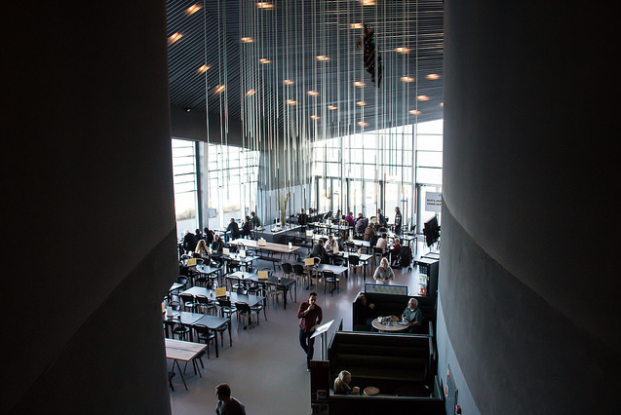
(Source: Flickr)
Before you open a restaurant, before you secure investments, before you even come up with a business plan, you’re going to need a restaurant concept. Basically, this is your decision about what type of restaurant you’d like to open, whether it’s a neighborhood dive joint, a classy establishment with a whisky-tasting menu, a high end farm to table restaurant, or a casual Italian eatery.
Having a concept is one of the first and most vital steps in the journey of opening a restaurant; it acts as the foundation of not only the menu and look of the restaurant, but every construction plan, financial projection, and marketing plan. Having a clear concept can help you reduce overall costs by streamlining the restaurant opening process to include only the steps and investments needed to suit your needs. These tips are specifically designed to help you decide what type of restaurant concept is right for you.
What is a restaurant concept? Still confused about what a restaurant concept is? Let’s clarify. You might be tempted to confuse a restaurant concept with a theme restaurant. A theme restaurant can be over-the-top, with an overarching theme and decor which affects the entire eating experience. While this does play into the restaurant’s concept, it doesn’t mean that your restaurant has to have flashy signs or wacky decor.
Your concept is the basic thread that you want to convey in your restaurant. Often, this will reflect who you are and what you want to cook at your restaurant. For instance, if you are trained as a French chef and want to open a fine dining establishment, that would be your restaurant concept: French fine dining. If you want to create simple cuisine using local ingredients, that too is a concept.
9 Tips for Deciding on a Restaurant Concept. Here, we’ll talk about different ways to decide what your restaurant concept might be.
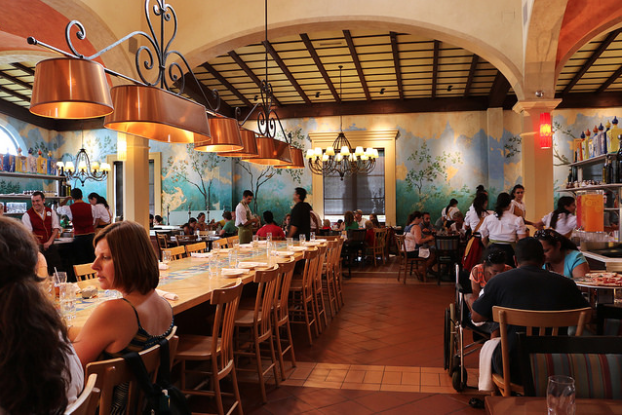
(Source: Flickr)
What cuisine would you like to offer? This might seem very obvious, but it bears mention because it is so important. What type of cuisine do you want to offer at your restaurant? Whether it’s southern classic cooking with a modern twist, traditional sushi, or low-key Mexican comfort food, this can be a great start in choosing a concept for your restaurant.
Keep it simple. Have you ever heard the term “jack of all trades, master of none”? Consider it strongly when choosing a concept for your restaurant. While a tiki bar, a 50’s diner, and a Brazilian steakhouse are all viable restaurant concept ideas, they might not all work together in the same restaurant. Choose what you want to go with, and really keep it simple. Think about a concept so simple that people can describe it to their friends in a sentence. That is how your restaurant will be marketed via word of mouth!
What will your price points be? This can be a very helpful trick in deciding on a restaurant concept: what type of price points do you want to offer your food for sale? If you want to charge fine dining prices, a casual grilled cheese restaurant might not be the right restaurant concept to match the prices you’d like to demand. On the flip side, you may not be able to support the prices for fine dining ingredients if you want to keep entrees under $10.
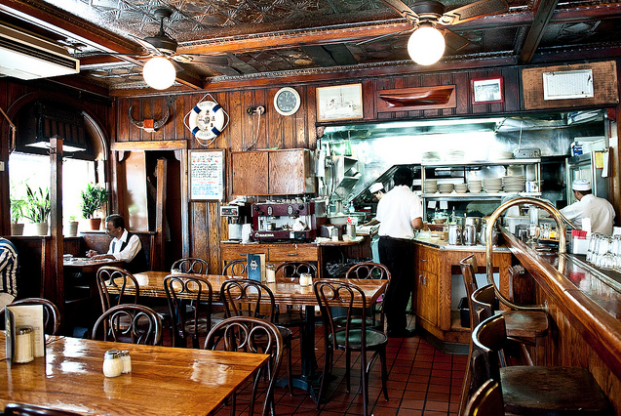
(Source: Flickr)
Consider your clientele. What type of clientele are you hoping to attract? Is it millennials, who want to go to quirky establishments where it’s acceptable to whip out phones and post Instagram pictures? Or are you hoping for a classy pre-theater crowd? Considering the clientele you’d like to attract can help you refine your restaurant’s concept to suit the style that this type of person might gravitate toward.
Location, location, location. Your location will have a huge effect on choosing the most effective restaurant concept. If you choose to open a restaurant in an up and coming hipster neighborhood, you may be able to open a more quirky establishment, whereas if you are in a business corridor where people dine out to have business meetings, a different type of vibe might be in order.
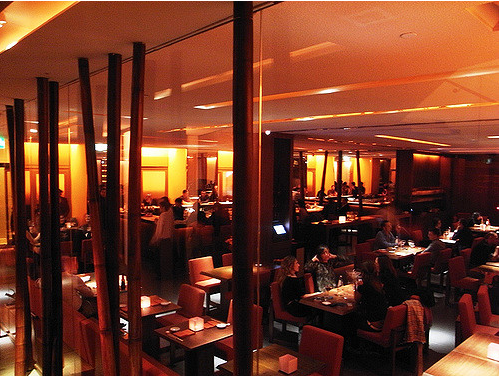
(Source: Flickr)
How big is your space? An important factor in choosing a restaurant concept is the space. How large is it? If it is a very small space with only one or two tables, a more casual take-out concept might be the best fit. If it’s a cavernous space with two bars and 75 tables, you might want to consider a more crowd-pleasing concept with trend-proof dining options where people can bring large groups.
Ask yourself: is this concept unique? Here’s a big question, and one that requires that you take a step back and really answer honestly. Is your restaurant concept unique? Now, this is not to say that there isn’t room for more than one farm to table restaurant in your town. However, if there are three farm to table restaurants in the neighborhood in which you’d like to set up shop, your concept might not stand out enough to make an impact, and it might come off as derivative, even if you had this idea before the other establishments were open. Either choose a different location or pick a different concept.
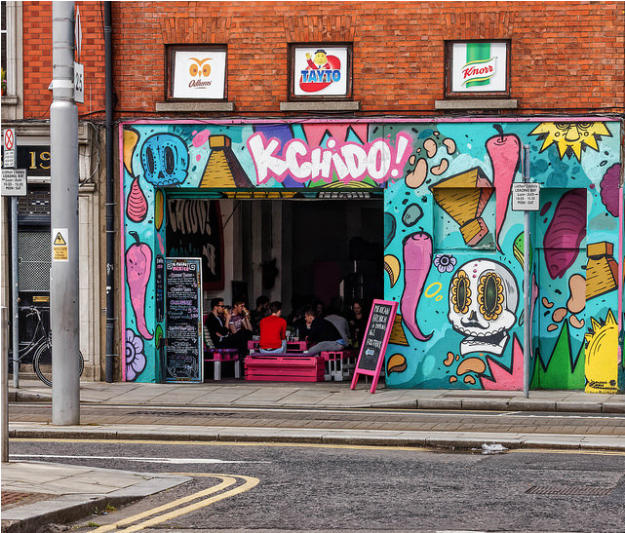
(Source: Flickr)
Is the world ready for your concept? When Korean tacos made their debut, they made a huge splash, because nobody had seen fusion quite like that. Originally gaining popularity via food truck, the trend quickly took over in restaurants. Offering this innovative new twist on cuisine from a food truck was a great way to gain traction: people were more willing to try something new in that non-traditional setting. Is the world ready for your concept? Are there familiar aspects of what you’re offering, or are you forging a new path? If so, consider what will go into the learning curve and educating the public on your concept. If you are doing something totally new, perhaps consider testing the waters by offering food via food truck or via catering before opening a restaurant, to test out your concept.
Is it press-worthy? A restaurant concept can act as a powerful marketing tool. So is your concept something that will make for great press features? Think about how you can pitch your concept. For instance, “comfort food with a Mediterranean twist” sounds interesting and inviting, and makes for a concise headline or fun social media follow. Is your concept something interesting that could be used for marketing? You’ll be doing yourself a service by considering this before settling on a concept.
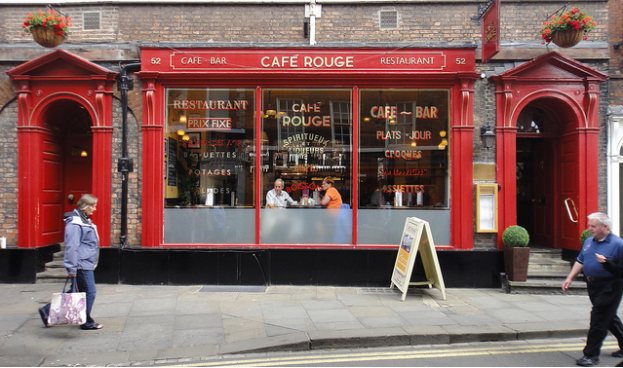
(Source: Flickr)
Conclusion: Deciding on a restaurant concept doesn’t have to be scary. It can actually be fun, and gives you an opportunity to be creative and dream while also helping you gain clarity on your goals for the restaurant. Ultimately, taking the time to decide on a restaurant concept will help you create the most clear projections for your business, which will help you keep your eyes on the prize during the long and sometimes arduous process of opening a restaurant.
How did you decide on a restaurant concept?


